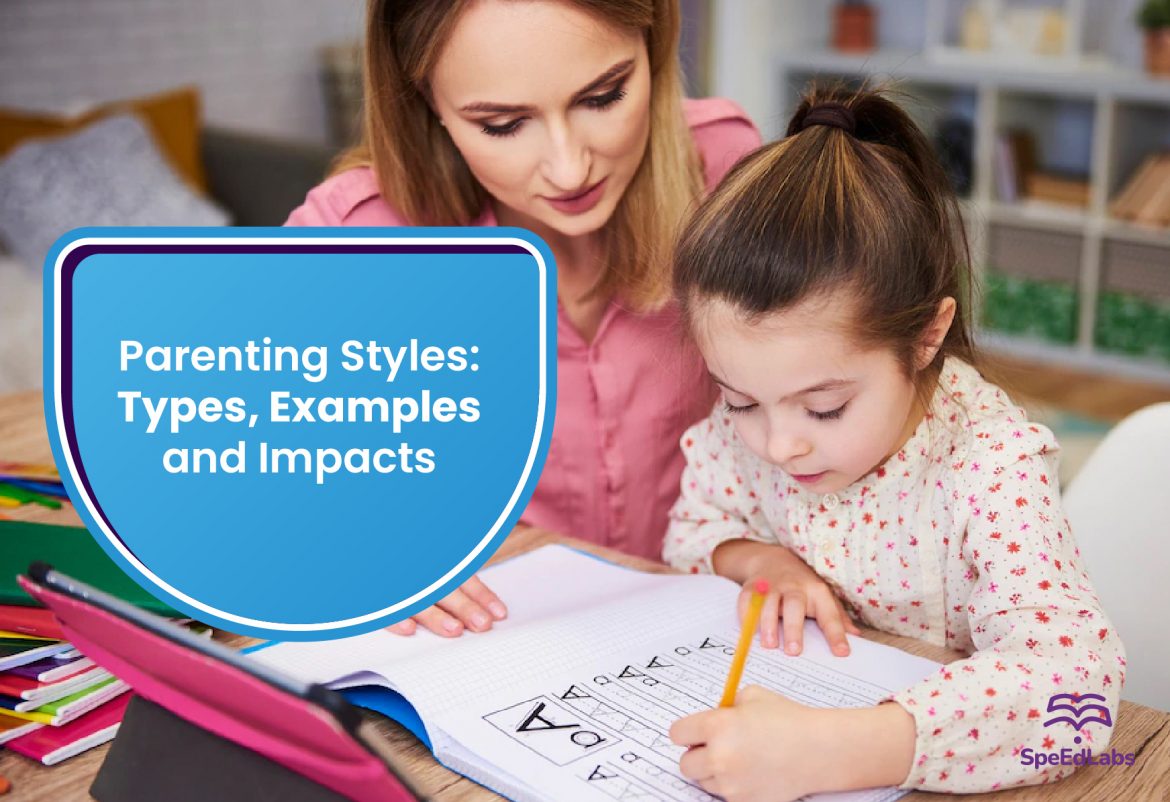Parenthood is both a source of joy and a source of anxiety for many people. When this happens, instincts, childhood experiences, and ideas gleaned from other parents, friends, and other sources come together to form a distinct parenting style that is unique to each parent and family.
Major Parenting Styles
There are 4 major types of parenting styles widely identified around the world.
Authoritarian Parenting
The authoritarian or “do as I say” parent assumes full responsibility for the child, makes all decisions, and expects the child to obey without question. Without freedom, there is no order. Rules are made and enforced entirely by the parent, with no room for reasoning, discussion, or negotiation.
Expected Outcomes
- To avoid punishment, the child learns to lie to hide his or her mistakes.
- He is helpless and vulnerable to peer pressure due to his lack of decision-making training.
- The ability to appreciate various points of view has been harmed. As a result, the child becomes judgmental, which leads to peer rejection.
- He has trouble trusting his abilities because of his parents’ harsh criticism, which has lowered his self-esteem.
- The frustrations he feels as a result of all of this are suppressed, and he acts passively; alternatively, they are released through angry outbursts.
- As a teenager, he becomes excessively defiant of authority.
- The ability to think critically is being hampered.
Permissive Parenting
The permissive parent indulges excessively, giving in to the child’s demands and shielding her from disappointments. She is free to break or bend rules without fear of repercussions.
Expected Outcomes
- Because she always gets her way, the child comes to expect the same treatment from her peers, making her unpopular.
- She learns to disregard and defy rules, and she has trouble comprehending the gravity of such offenses.
- She develops an inflated sense of self after being showered with indiscriminate praise.
- She learns to blame her parents and others for her mistakes because she isn’t expected to be responsible for herself.
- She gains control over her submissive parents, feels entitled to be served, and is forgiven for her mistakes.
- She is terrified deep down.
Neglectful Parenting
Neglectful parents shirk their responsibilities, allowing their children to grow up without supervision or care. There are no rules in place, and there is no meaningful parent-child relationship. The family members live disjointed lives.
Expected Outcomes
- The child is fighting for his or her life.
- He becomes reliant on anyone who cares for him.
- He is more susceptible to antisocial influences and depression.
- He feels abandoned and unloved, which makes him sad and depressed.
- His deteriorating emotional health has an impact on his ability to concentrate and pay attention in class.
Authoritative Parenting
The Authoritative Parent promotes mutual respect between parent and child by emphasising equality over hierarchy. While the parent retains ultimate authority, the rules are explained and opinions and agreement are obtained through discussion. There is freedom within the bounds of the law. Everyday events are used by the parent to teach the child how to distinguish between good and bad choices. She is encouraged to grow as a person by reflecting on and learning from her mistakes, as well as continuing to try. The authoritative parent instructs and guides children on how to live in the real world.
Expected Outcomes
- The child learns to be courageous in the face of adversity.
- She becomes self-motivated and works hard to achieve her goals based on her interests and efforts.
- Her emotional stability has improved, allowing her to concentrate more on academics and achievement.
- She develops assertiveness, places a high value on friendships, and is cooperative, responsible, and caring.
Other Kinds of Parenting
Parenting with attachment
The parent is acutely aware of the child’s requirements. Long periods of breastfeeding, constant nurturing touches, and allowing the child to share the parental bed are all part of the style. Research studies have backed up the concept of attachment. However, the practices that this style entails are debatable and have yet to be proven by scientific studies.
Unconditional Parenting
The child’s needs are met without exception. It is centered on ‘working with’ rather than ‘doing to the child’. The emphasis is on loving the child regardless of his or her behaviour or mistakes.
Parenting in a Spiritual Way
It’s all about connecting with a child’s innocent spirit and believing that parents are the only ones who can bring a child into the world. It’s about the parent letting the child live his life based on his inherent understanding of how to be happy. The parent’s role is seen as facilitating this process by understanding and explaining the child’s simplistic view of the world to those involved in his development.
Parenting that is narcissistic
Parents are overly attached to their children and are jealous of and threatened by their growing independence.
Helicopter Parenting
The parent hovers over the child at all times, trying to control, monitor, and protect him and his surroundings.
Toxic Parenting
A parent’s negative behaviour damages the child’s emotional well-being and undermines his or her sense of self.
Key Takeaways
Is one style superior to the others? While studies show that authoritative parenting is preferred, those who practise it are likely to borrow from other parenting styles as well, depending on the situation, the state of mind at the time, and the issue at hand.
Positive parenting is what should be aimed for on the whole.
Also published on Medium.
